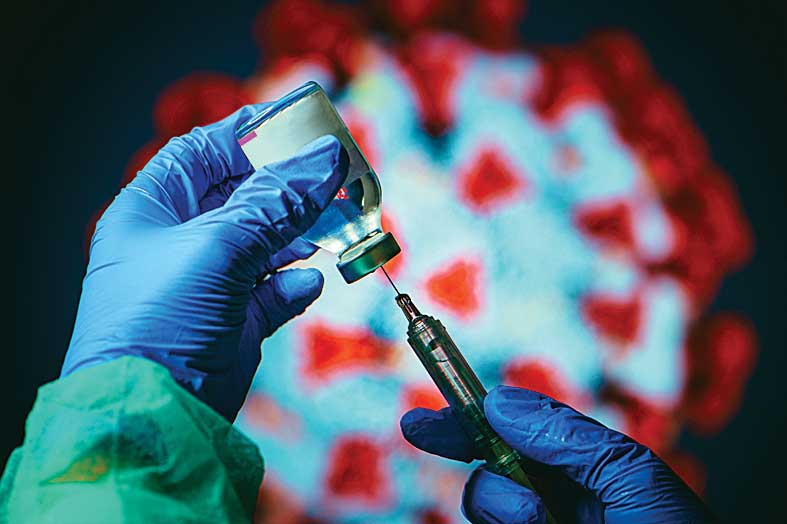According to a World Health Organization (WHO) epidemiologist, Covid-19 vaccines are showing reduced signs of efficacy against the Delta variant of coronavirus. The vaccines are, however, still found to be effective at preventing severe illness and death.
As per a Hindustan Times report, in future, there might be a "constellation of mutations" which means vaccines are likely to lose their potency against fighting the coronavirus, the WHO official added.
“Vaccines are a critical tool in the battle against Covid-19, and there are clear public health and lifesaving benefits to using the tools we already have. We must not put off getting vaccinated because of our concerns about new variants, and we must proceed with vaccination even if the vaccines may be somewhat less effective against some of the Covid-19 virus variants. We need to use the tools we have in hand even while we continue to improve those tools. We are all safe only if everyone is safe,” WHO said in a statement recently.
The Delta plus variant has been formed due to a mutation in the Delta or B.1.617.2 variant. First detected in India, the Delta variant – which now accounts for more than 90% of new Covid cases in the UK – has raised concerns as it appears to be somewhat more resistant to vaccines than the Alpha variant that was first detected in Kent and previously dominated in the UK. It is also considered one of the drivers of the second wave in India.
The highly transmissible variant of the virus is listed as the fourth variant of concern by the WHO.
British Prime Minister Boris Johnson on Monday warned of a "rough winter" ahead even though things may be "looking good" for July 19 to be the so-called "terminus point" marking an end to all lockdown restrictions in the country.
His warning came as the UK registered a further 9,284 daily Covid-19 infections on Sunday, a day before the government had planned to ease all lockdown measures until the Delta variant forced a month-long delay into July.
"You can never exclude that there will be some new disease, some new horror that we simply haven't budgeted for or accounted for," said Johnson, when asked about further lockdowns in future.
"But looking at where we are, at the efficacy of the vaccines against all variants that we can currently see, I think it's looking good for 19 July to be that terminus point," he told reporters.
He indicated that the cases of the Delta variant are rising at a rate of about 30 per cent a week, with hospitalisations and intensive care admissions "roughly the same".
"I think what the scientists are saying is that things like flu will come back this winter, we may have a rough winter for all sorts of reasons, and obviously there are big pressures on the NHS. All the more reason to reduce the number of Covid cases now, give the NHS the breathing space it needs to get on with dealing with all those other pressures, and we are certainly going to be putting in the investment to make sure that they can, he added.
The Russian authorities have also blamed the ongoing surge in cases, which has seen more than 17,000 new Covid-19 cases reported for a fourth day running, on the new Delta variant, while conceding that a nationwide ad campaign meant to encourage people to get vaccinated had fallen short. President Vladimir Putin warned on Monday that the coronavirus situation in some Russian regions was getting worse.
Additionally, the Portuguese authorities have confirmed suspicions that the new delta variant of the coronavirus is driving a spike in new cases in the Lisbon region.
Portugal's National Health Institute said Sunday the highly infectious variant that was first found in India has a prevalence of 60% of new cases in the nation's capital.









